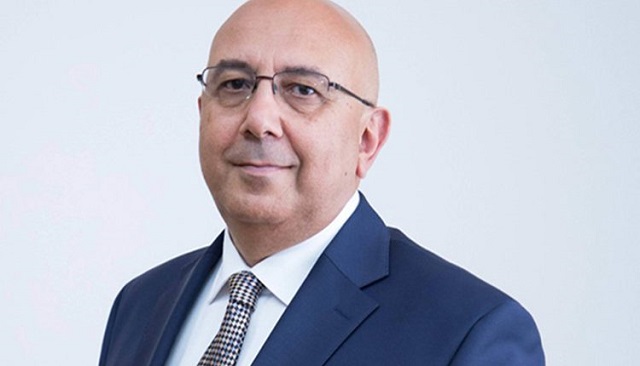BY ARMEN BAIBOURTIAN
Op-Ed published in Fresno Bee November 3,2020
The world’s first Christian nation and a modern democracy is currently facing an existential threat — one that should not exist in the 21st century. A NATO ally of the United States is prominently involved. The problem is, they are on opposite sides.
Read also
Right now, the life of the entire Armenian population in Artsakh (Nagorno-Karabakh) is imminently endangered, as Azerbaijan, directly aided and abetted by its ally Turkey, has launched a large-scale attack on Artsakh. Since the first day of the aggression, the Azerbaijani armed forces have targeted and bombarded civilian settlements and infrastructures, including churches, schools and hospitals.
To ensure lasting peace in the region and for the people of Artsakh, we need support with respect to several critical objectives: securing international recognition for an independent Republic of Artsakh, and using diplomatic tools, including sanctions, by the United States and the other co-chairs of the OSCE Minsk Group, to force Azerbaijan and Turkey to stop the hostilities, to abide by the ceasefire agreements, and to reject the use of force for achieving their goals.
To understand the calls of the Armenian-American community for lasting peace in Artsakh, it is important to comprehend the history of the region. Artsakh, also known by its Soviet name, Nagorno-Karabakh, is indigenous to ethnic Armenians for thousands of years. An early cradle of Christianity and home to the very first Armenian school teaching the Armenian alphabet, Artsakh today is a modern democracy and a de facto state with its own president, legislature and self-defense force. It has been vying for self-determination since the fall of the Soviet Union.
Nagorno-Karabakh was transferred as an autonomous region to the Azerbaijan Soviet Socialist Republic by the arbitrary decision of Joseph Stalin in 1923. Due to years of ethnic oppression, the people of Artsakh made peaceful calls for self-determination in 1987-88. These peaceful petitions were not only rejected by the Azerbaijan SSR, but also accompanied by violent pogroms and ethnic cleansing in Sumgait in 1988 and in Baku in 1990. In response, Artsakh held a referendum and legally declared its independence from the USSR in 1991, in line with the provisions of the Soviet constitution. Thus, Nagorno-Karabakh was never a part of independent Azerbaijan. After two years of fighting, the Armenian forces prevailed, and a ceasefire agreement was signed in 1994.
Since then, the United States, Russia and France have co-chaired the Organization for Security and Cooperation in Europe (OSCE) Minsk Group, helping us work toward a long-term peaceful solution. The recent events and the Azerbaijani violation of three ceasefire agreements brokered by the OSCE Minsk Group co-chair members — with the last one directly brokered by U.S. Secretary of State Mike Pompeo — demonstrate that Azerbaijan is not willing to play by the rules.
“Remedial recognition” of the independence of Artsakh and thus its people’s right to self-determination in line with international law gives a hopeful path to ending the bitter war launched against the Armenian people, to securing lasting peace for Artsakh and Armenia, and to saving lives of innocent men, women, and children. By legitimizing the Republic of Artsakh within the international community, the focus can move toward creating the necessary mechanism and infrastructure for the peaceful co-existence of Artsakh and Azerbaijan. At that point, the independent Republic of Artsakh can come to the table to make a lasting deal without being under threat.
Turkey is a member of NATO, which is a complicating factor. However, I don’t think many Americans are aware that the Turkish military has clandestinely deployed American-made F-16 fighter jets in Azerbaijan to conduct operations against Artsakh and Armenia. Turkey recruited and transported thousands of jihadist mercenary terrorists from Syria and Libya to Azerbaijan in order to fight against the Armenians. Turkish President Erdogan publicly threatened to finish the Armenian Genocide that was committed in Ottoman Turkey in 1915.
Nobody is willing to work harder to create a lasting peace in Artsakh than Armenia. But we need the rest of the world to make sure Azerbaijan and Turkey play by the rules as well.
Ambassador Armen Baibourtian is the Consul General of Armenia in Los Angeles.



















































